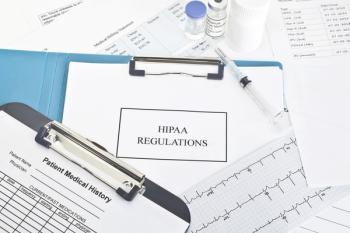
In the eyes of the law, prescribing opioids for patients with chronic pain means upholding ethical standards of professional conduct, not following a checklist.

In the eyes of the law, prescribing opioids for patients with chronic pain means upholding ethical standards of professional conduct, not following a checklist.

Privacy has always been as important as security. Biometrics add a new area for physicians and healthcare providers to watch.

Substandard care can lead to reduced payments for hospitals with excess readmissions.

Physician practices in states with legalized medical marijuana or recreational marijuana need to consider how to draft policies detailing physician usage.

The Department of Justice is taking action, so make sure you have an adequate compliance program in place.

A recent HIPAA fine and HHS’s healthcare app guidance underscore the importance of conducting risk analyses to protect personal health information.

The dream of expanding your practice can be a reality-if you plan carefully.

Hospitals across the country are purchasing private practices even though patients prefer AND receive better care from independent physicians.

The way you apologize may have different implications, depending on how providers say it.

A recent court ruling illustrates the risk of failing to place behavioral health coverage needs ahead of financial interest.

The government is lowering its civil monetary penalties under the HITECH Act.

There are multiple reasons pass-through billing is illegal and fraudulent-and easy to catch.

Is your practice compliant with the Eliminating Kickbacks and Recovery Act of 2018 (EKRA)? If you don't know what EKRA is, you are not alone-and that is part of the problem.

Nosy employees poking around in medical records or sharing passwords can put your practice at risk of HIPAA violations, lawsuits, and broken agreements with affiliate hospitals or practices.

The leading cause of physician burnout also puts patients at risk of medical errors, the third leading cause of death in the United States.

The government’s change to the H-1B process could negatively impact thousands of physicians who wish to practice in rural communities and intensify the growing physician shortage.

Parsing out the various terms used in relation to a patient’s health record can be daunting. Here’s a primer to make the process less intimidating

The legality of caring for minor patients once they turn 18.

Recent False Claims Act settlement underscores the importance of accurate Meaningful Use attestations.

It’s great that you want to share the wealth with your nonphysician employees. Just make sure you draft a policy that also meets state and federal laws.

A look back at notable U.S. Department of Justice settlements and policy directives to see what lies ahead for 2019.

Lax policies regarding medical records and ordering prescriptions and tests puts physicians-and their practices-at risk of DEA and HIPAA violations.

A trend to watch: Last year, two states made significant changes to laws related to personally identifiable information and protected health information.

Physicians who write a script for themselves, or their friends and family, risk a suspended license-unless they have a record of proper documentation.

Four ways advances in EHR technology can help providers achieve mandated MIPS target performance to not only report but also improve patient care.